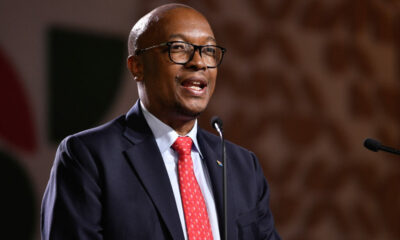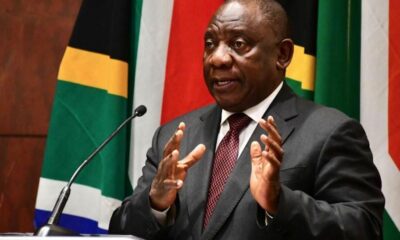News
Why Parliament Said No to the DA’s “Race-Neutral” Bill And What It Means for Real Empowerment in SA

Parliament Draws The Line
South Africa’s Parliament has rejected the Democratic Alliance’s push to scrap race-based criteria in public procurement a move many say would have ripped the spine out of Broad-Based Black Economic Empowerment (BBBEE).
DA MP Mathew Cuthbert’s proposal, framed under the banner of “Economic Inclusion for All,” aimed to repeal key sections of BBBEE law and remove racial preference points in government tenders. But for lawmakers across the aisle, it wasn’t inclusion it was erasure.
The rejection wasn’t just another political vote. It was Parliament telling the country: we’ve been here before, and we’re not going back.
The Politics Behind The Billboard
Earlier this week, the DA unveiled a billboard in Johannesburg reading: “BEE made ANC elites rich and left SA poor.” Visible from the N1 near Strydom Park, it sparked fierce debate online.
Critics called it tone-deaf and divisive, accusing the DA of weaponising public frustration over corruption to dismantle the very tools designed to fix inequality. “You can’t fix the roof by burning down the house,” one user posted on X (formerly Twitter).
Supporters, however, praised the party’s stance as a stand for merit and fairness. But for most South Africans especially black professionals and entrepreneurs the slogan felt like déjà vu from an era when race didn’t need to be named because privilege spoke for itself.
Why “Race-Neutral” Isn’t Neutral
Let’s be real: South Africa’s economy is not a blank canvas. Apartheid designed it that way who owned, who worked, who borrowed, who got educated, who lived near opportunity.
Stripping BBBEE from procurement doesn’t make things fairer; it freezes inequality in place. Section 9(2) of the Constitution actually authorises corrective measures for those disadvantaged by past discrimination, and Section 217 allows government to use preferential procurement to achieve equality.
The DA’s claim that BBBEE inflates costs and enriches elites misses a bigger truth: the system’s failures are due to weak enforcement, not the principle itself. As many experts argue, you don’t fix a broken ladder by throwing it away you strengthen the rungs.
BBBEE 2.0: Fixing The Framework, Not Abandoning It
If South Africa is serious about meaningful inclusion, the real project is not repeal but reform. Here’s what transformation insiders are calling for:
-
Digitised compliance Cut red tape and create real-time dashboards showing who’s benefiting, where jobs are created, and which businesses are breaking through.
-
Township and rural supply chains Embed local content rules and support micro-suppliers to access long-term government contracts.
-
Unencumbered ownership Prioritise real, debt-free stakes in companies, especially for workers and communities.
-
Skills with purpose Redirect training spend into scarce-skill sectors like renewables, data, and healthcare not box-ticking workshops.
-
Stronger watchdogs Resource the B-BBEE Commission to prosecute fronting and fake certificates with the same bite as the Competition Commission.
These are not just bureaucratic tweaks they are what empowerment looks like when it touches real lives, not just balance sheets.
The Investor Argument That Falls Flat
The DA’s “compliance cost” narrative may sound business-friendly, but global capital doesn’t see inclusion as charity anymore. ESG standards (environmental, social, governance) already measure diversity and equity as part of investment risk.
In short: investors now prefer countries that can prove inclusion works. South Africa’s challenge isn’t that empowerment exists it’s that it must deliver results faster and cleaner.
From Parliament To The People
For many South Africans, Parliament’s decision felt like a reaffirmation of principle: transformation is not up for negotiation.
Yes, BBBEE has flaws. Yes, fronting exists. But abandoning empowerment in the name of “neutrality” isn’t progress it’s regression dressed in policy jargon.
One community activist from Soweto summed it up best in a radio call-in: “We don’t want favours. We want fairness that remembers history.”
What Happens Next
With the DA’s bill defeated, attention now turns to the implementation of the Public Procurement Act 28 of 2024, which will reshape how government spending drives inclusion once it officially takes effect.
There’s still a court challenge from the Western Cape Government and City of Cape Town, but its focus is on process not the principle of empowerment itself.
The task ahead is clear: modernise BBBEE, make it transparent, make it real, and make it reach ordinary people.
Because at its core, empowerment isn’t about slogans or scorecards. It’s about ownership of the economy, of opportunity, and of the future South Africans were promised in 1994.
{Source:IOL}
Follow Joburg ETC on Facebook, Twitter , TikTok and Instagram
For more News in Johannesburg, visit joburgetc.com



























